Technologies that bring peace of mind to carers
WRITTEN BY USER ON 23RD NOVEMBER 2023
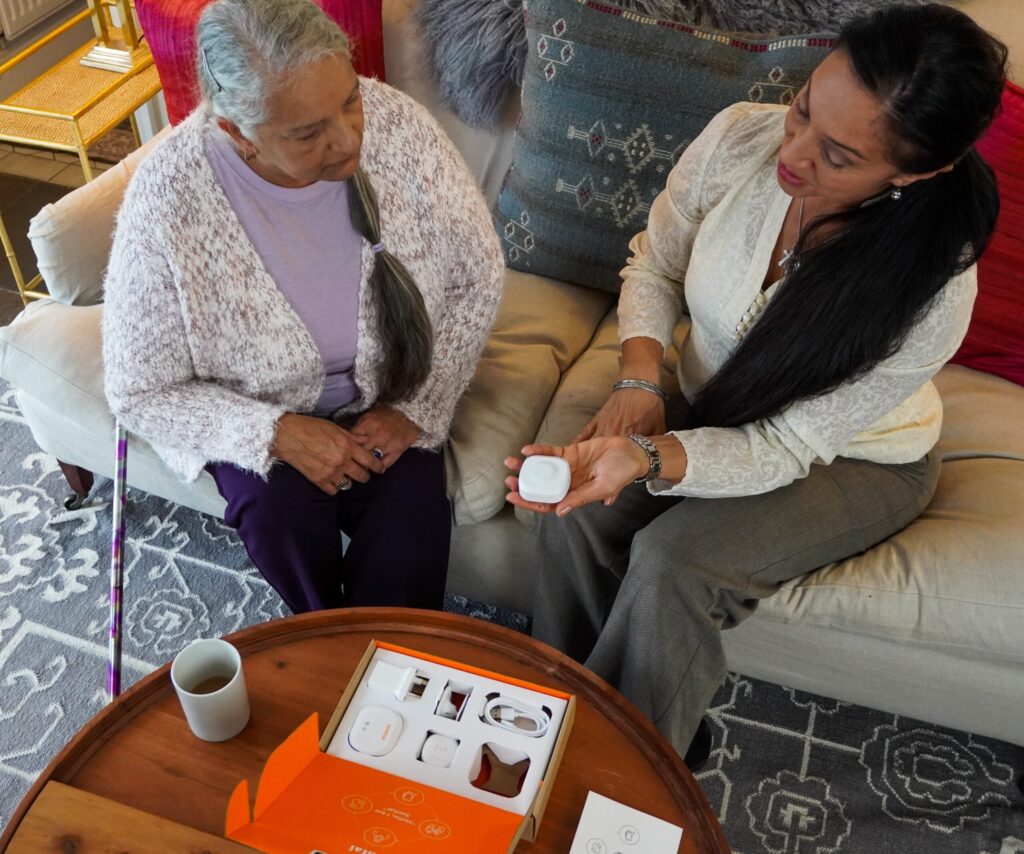
Take control – the technologies that bring peace of mind to carers, and independence to those they care for
Social care – and specifically the care of the elderly – is one of society’s most pressing challenges. Rising costs, fast moving lives and aging populations combine to sustain a state of crisis.
The question is, how can we care for elderly loved ones in ways that are practical and affordable – while also supporting them to live independently?
A combination of new technologies and human understanding offers the answer. It makes sense of social care chaos – to bring carers peace of mind, and those they care for the fulfilling, independent lives they want to live.
Formal care - a system under stress
Today, formal care settings face huge pressures. Care homes grapple with workforce shortages, multi-billion-pound funding gaps and rocketing costs. In 2022, 123 UK care homes opened, but 247 closed. We find similar problems in the home care sector: councils report that providing care in someone’s home is increasingly unsustainable, with costs rapidly outstripping funding.
Formal care ‘in a home’ or ‘at home’ has now become so expensive that bills are eating up the equity in people’s homes – homes that they have worked a lifetime to own.
Informal care takes the strain
As formal structures struggle, an army of informal carers has mobilised to take the strain. Or to put that another way – you and me. Carers UK estimates that one in five of us are carers – that’s around 10 million people. The majority are between 45 and 65, so likely to be juggling work, immediate family and carer responsibilities.
Whilst bringing elderly relatives into our own homes might seem sensible, this only creates new problems. Few of us have the space to accommodate another adult. We may struggle to find the time to provide care, adding to family pressures. Finally, and importantly, most over 75s don’t want a new home: 2023 research shows that 72% want support to stay in their own.
It’s a lose-lose care environment: older people feel powerless, isolated and a burden; while over nine in 10 carers feel guilty because they believe they should be doing more.
Carer peace of mind
Sentai sees an alternative: one where older relatives remain in in their own homes; and carers support them to stay there without facing bankruptcy or burnout.
We use emerging and established technologies to make this possible – including Artificial Intelligence (AI), Amazon’s Alexa and motion sensors – but it’s human insight that makes them powerful. It has allowed us to create a new form of Digital Care Assistant, where the care experience is always familiar, instinctive and personal.
Controlled from the Sentai Hub, Personal Clicker and App, carers access a wealth of relevant information, which lets them know if their loved ones are following their daily routines, contacting friends, taking medication and even if they’ve watched their favourite TV programme. These are the indicators that show how loved ones are coping, if they need more help or would just appreciate a call or a visit.
Importantly, it’s daily insight that’s shared without constant nagging. Carers have the information they need to provide support – taking control without taking over. It means that peace of mind doesn’t come at the expense of family relationships, or a loved one’s independence.
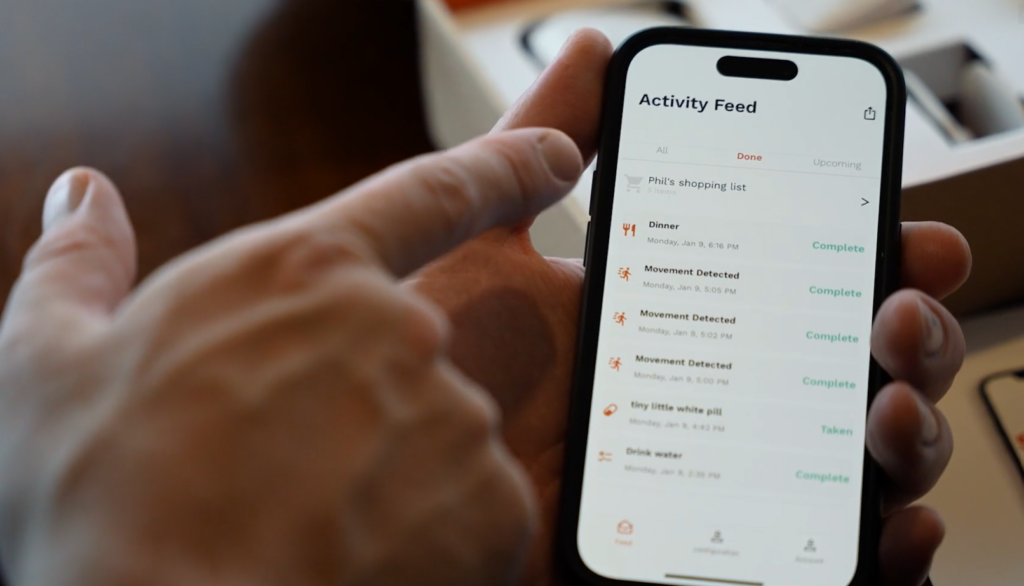
Elder independence
We know that living alone can lead to loneliness – one of the biggest threats to an older person’s independence. The loss of a partner, friends, restricted mobility and other issues can cause isolation – and evidence shows this is strongly linked to anxiety and depression.
Sentai works to combat this – stimulating older people by building a bridge to the world. Our Digital Care Assistant, for example, creates friend lists, so starting a conversation with someone – who’s around the corner or on the other side of the world – is as easy as and saying, “Call Sophia”. Further, if the older person hasn’t spoken to their friends for a while, Sentai can encourage them to reach out.
We are also gamifying engagement, which essentially means making interactions purposeful and fun. Quizzes and other gamifying tools can encourage conversations between grandparents and grandchildren, for example, to strengthen family bonds.
Speaking to older people using three distinct voices and personalities through the popular Alexa Echo speaker, we help to create a sense of community in the home. Exploring the growing capabilities of AI, we are also making these conversations increasingly natural and meaningful.
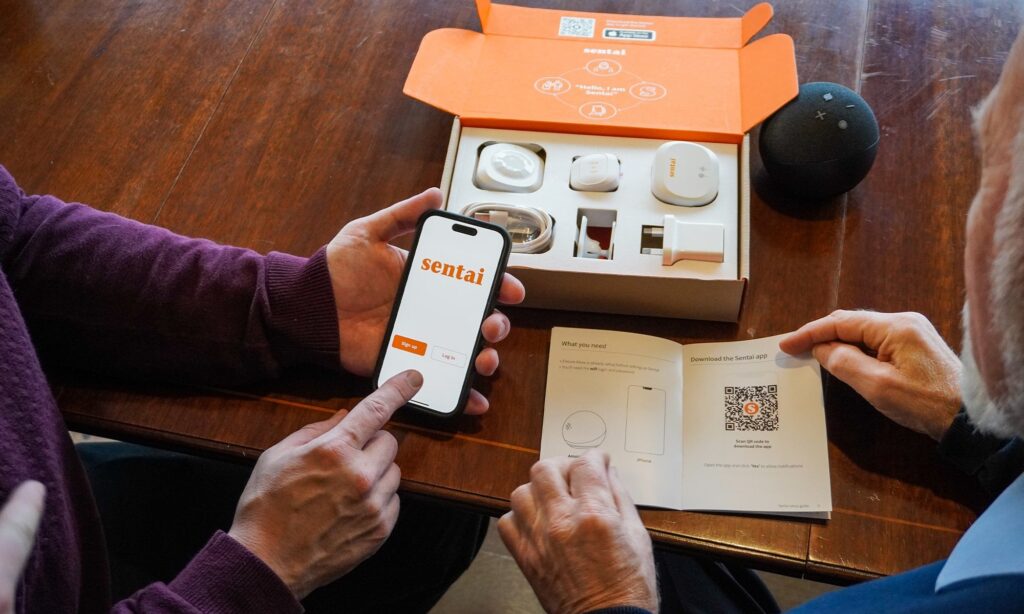
Take control
As social care options diminish, carers and older people can feel powerless. Sentai uses advanced but low-cost technologies to solve these very human challenges. We grow with families – always learning to make the system more familiar, friendly and effective.
Taking care of the essentials, we help carers and older people to take control – so that families make the most of every moment together.
You might also be interested in

Revolutionising hospital discharge: The transformative power of digital care solutions for the elderly.
The issue of delayed discharges from hospitals has been worsening year on year as our population grows and ages, leaving NHS services increasingly overburdened. This growth will only expand in the coming years with experts estimating that between 2018 and 2035 the population aged 80 and over in the UK is expected to increase by… Continue reading Revolutionising hospital discharge: The transformative power of digital care solutions for the elderly.
Read more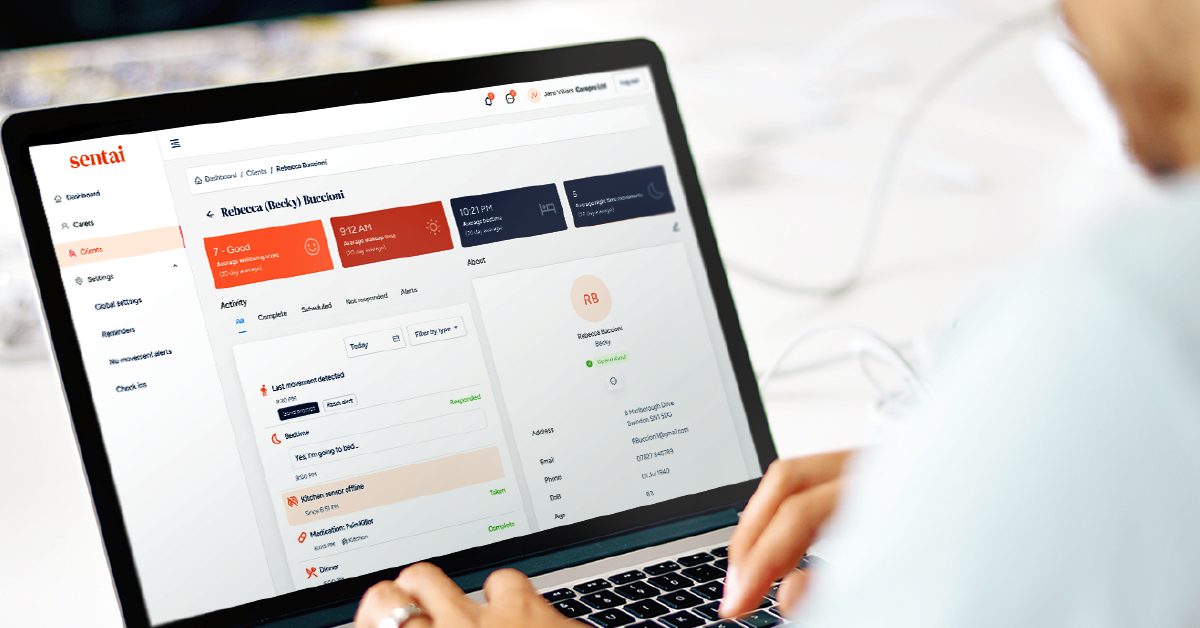
Why it’s time to add a digital offering to your care service
In an era of rapid technological advancement, the care industry is not exempt from the transformative power of digital innovation. From care homes to those that receive in-home care, technology has the power to improve quality of life and the care received. This is why Sentai is offering to support care providers and empowering them… Continue reading Why it’s time to add a digital offering to your care service
Read more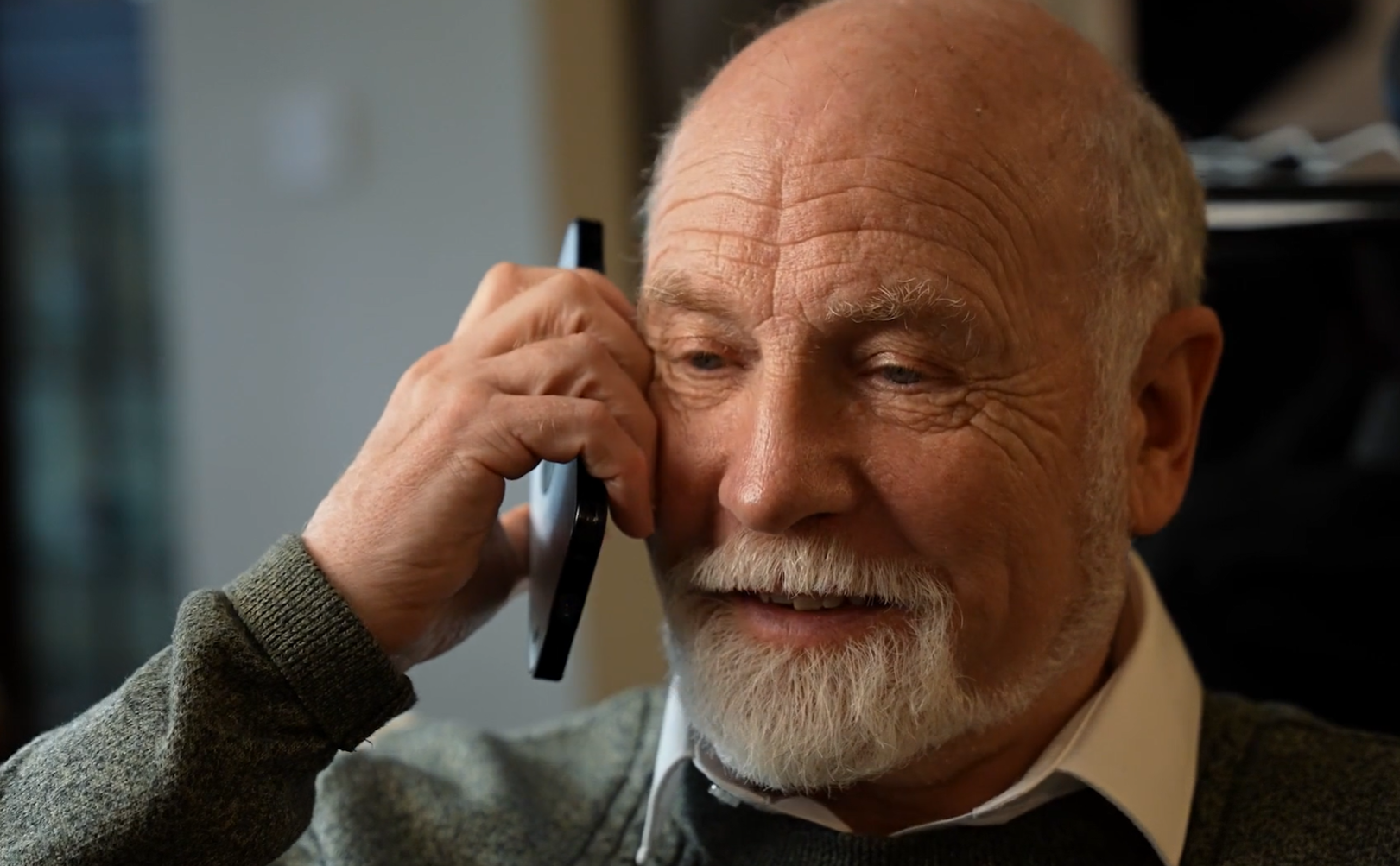
Reducing loneliness in older people | How Sentai can offer companionship
At Sentai, our mission is to reduce loneliness in older people. In this blog, we’ll be discussing how our AI technology can help by offering companionship.
Read more